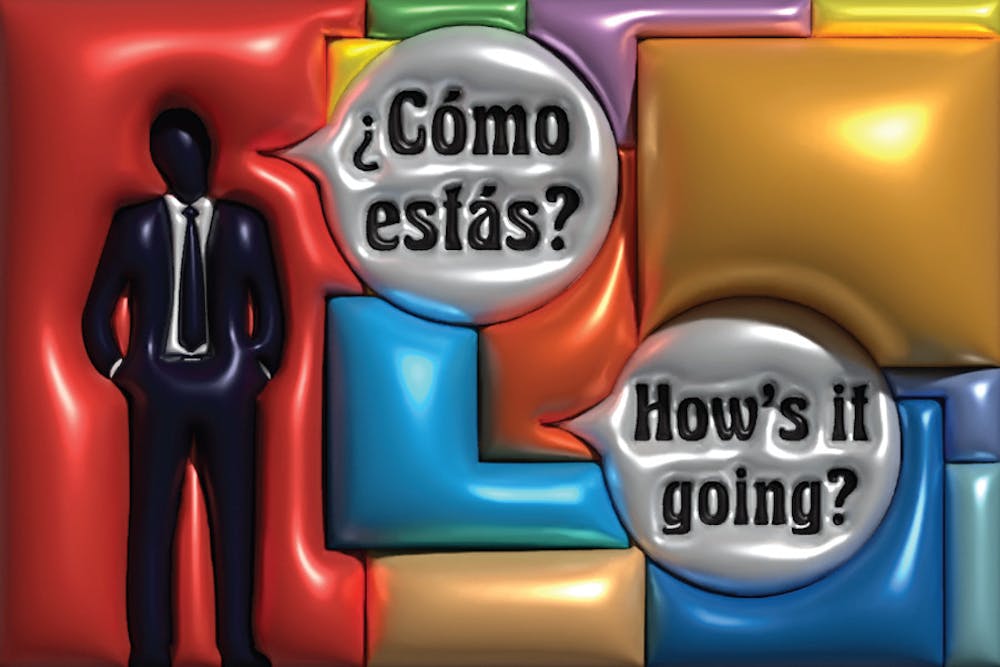The ASU Child Language and Literacy Lab offers ongoing opportunities in the field of language development for both children in need of services and the developmental professionals who help them.
Shelley Gray, who is the professor at the College of Health Solutions and the principal investigator for the lab, founded the CHILLL lab 22 years ago.
"Oral language is the basis for everything we do in life," Gray said. "Now it's your basis for your social relationships, for your future reading and writing skills. The way we preserve knowledge across generations is being able to talk with each other."
This is where language development becomes a critically important field, because difficulties with language become difficulties with most other facets of life, including school, work and even receiving healthcare.
Some of their current projects include a longitudinal study that has followed the reading development of a cohort for 13 years and an ongoing study on the importance of working memory on language development.
"(Working memory) is the memory that you use as you're taking in information from all your different senses and you're having to hold it in mind," said Gray. "You make sense of it and then you store it. It's a really strong predictor of learning in all areas, and we want to improve learning for kids, especially kids with disabilities."
Mariana Silva, a graduate student in the department of Speech and Hearing Science who is conducting research through the CHILLL lab highlighted the opportunities the lab provides for student researchers.
"We're looking at how exercise can help children acquire vocabulary," Silva said. "For the exercise and vocabulary (study), if anyone is interested, please reach out to me. We would love to have you and incorporate you in our study."
The CHILLL lab also uses their studies to produce curriculum before creating further studies to ensure that the curriculum can be deployed successfully. This process is called implementation science, and it's one of the lab's primary focuses.
The lab also has a translational team to connect research to the community, which is a wider College of Health Solutions practice. The CHILLL lab team has two main wings, the ECHO program and the Dyslexia Screener Questionnaire.
Project ECHO aims to provide new research and training to underserved populations through their childhood developmental professionals. Karie Taylor currently serves as the Project ECHO Coordinator for the CHILLL lab.
"In the state of Arizona, we have a challenge in ensuring all families have access to high quality early childhood programs," Taylor said. "Our initiative under ECHO was to help bring the evidence-based information that comes out of some of the studies of the lab and other areas of development to teachers in those underserved communities."
The project works by recruiting developmental professionals, like teachers, speech therapists and healthcare professionals, and generating training materials for the collective profession based on their needs.
"We are always constantly recruiting members to be part of our collaborative, and the collaborative is really what drives the trainings we provide," said Taylor. "We use statewide data, everything (is) driven by the data to indicate the professional development needs in Arizona."
The other wing of the translational team is the Dyslexia Screener Questionnaire. Dyslexia is a complex learning disorder that impacts the ability to identify speech sounds and how they create words.
R.J. Risueño is a PhD student in the Speech and Hearing Science program and a research assistant at the CHILLL lab working on the dyslexia screener program.
"I see this as a health equity issue," Risueño said. "A lot of times, children with dyslexia get diagnosed when it's essentially too late for effective intervention, because you have well-meaning teachers who believe that children will catch up."
The lab's dyslexia screening questionnaire aims to screen children for dyslexia and diagnose them at six years of age, a time when children already are seeing a doctor for their six-year wellness check, according to Risueño.
The screener program is in collaboration with Phoenix Children's Hospital and Valleywise Health. It is just one of a suite of tools available to parents and children if there are concerns about a child's language development.
"If you have concerns about your child's development, don't wait. You can always raise them with your pediatrician," Gray said. "Go to the State of Arizona website and they have information on developmental milestones and who to contact. If you're concerned, you can also call your local school district and say ‘I'm concerned’, even if it's a toddler."
The CHILLL lab at ASU is studying not only language development, but how to get beneficial practices in the hands of those who need it most and giving researchers and professionals opportunities to learn with them.
Edited by River Graziano, Sadie Buggle and Caera Learmonth.
Reach the reporter at syramir2@asu.edu and follow @nerdyoso on X.
Like The State Press on Facebook and follow @statepress on X.
Sophia is a senior studying biological sciences. This is her fifth semester with The State Press. She has also worked as a science and technology reporter.




